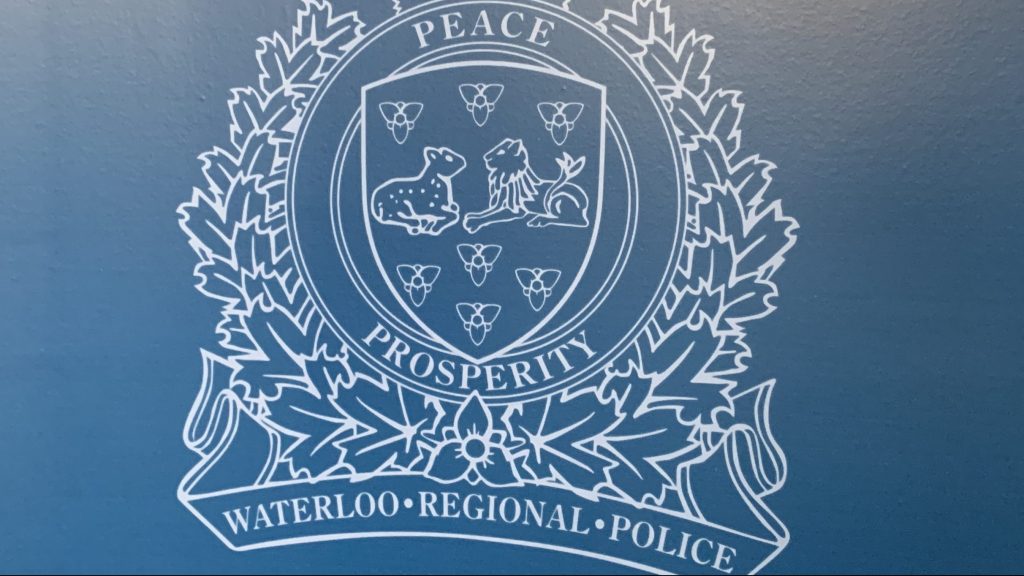‘We’re shortchanging our students,’ says school board trustee on cancelling SRO program
Posted Jun 24, 2021 01:30:00 PM.
One Waterloo Region District School Board (WRDSB) trustee believes decisions affecting students should be made based on opinions gathered from students.
Mike Ramsay, who was among the nays when it came to voting at a recent meeting on a report that recommended cancellation of the student resource officer program. He said he did so because he had concerns around the lack of student voices.
“There was no broad consultation with our students,” the Kitchener trustee told CambridgeToday. “What we largely heard from were a number of activists from outside of our board. I would acknowledge that there was one student on our committee that is currently within our school system. There was a student trustee also on the committee and he also had concerns with respect to the lack of consultation with our students.”
In addition to that, Ramsay said, the information that the committee relied on for the report came largely from outside Waterloo Region, even from as far away as Oakland, California.
“I don't believe that the decision was evidence-based,” he said. “I would strongly suggest that the main groups that should have been consulted were not consulted: our students and our local police, who from what I've seen, their relationship with students from our board is a very positive one.”
The report, available online, outlines the procedure adopted in collecting information for the recommendation.
The committee reviewed the Disproportionate Impact Report from the Ontario Human Rights Tribunal as well as the School Police Protocol. During its fourth meeting, the committee heard from Andrea Vásquez Jiménez, co-director at LAEN (Latinx, Afro-Latin-America, Abya Yala Education Network), Greg Dongen, a representative from Hamilton’s Students for Justice, and James Campbell, a Toronto District School Board high school teacher and member of Educators for Peace and Justice. The report also references the external review organized by the Waterloo Region Catholic District School Board (WRCDSB). Student voices from the Catholic school board have also been included in the report.
During the meeting, Karen Meissner, trustee Woolwich/Wellesley, said local students were part of the committee and student voices were what had triggered this review.
“How many students does it take to say this is harming me before we believe them? How many times do they have to tell us?” she said. “We're just delaying to what the academic research, data, and other reviews have already told us. This started with student voice, in fact, and we had students on the committee and we've seen students sharing through other channels.”
Tristan John-Jandles, student trustee, shared during the meeting that he was torn about the vote.
“I'd like to share that I completely acknowledge and thank the committee for unveiling that data that says students are traumatized,” he said. “I acknowledge the committee has gathered student voice, but is it the right student voice. Have we asked our students? For me, that answer is no.”
John-Jandles, who voted against the motion, turned down the paper's request to add further comment.
Ramsay said he wasn't discounting the value of looking at other communities or what's going on in other boards.
“I'm saying it should not come at the expense of what's going on in our own backyard and it's for the most part been a positive relationship,” he said. “Whether or not there's room for improvement we never got to that stage. The review was not informed by that. We owe it to our students to do that due diligence.”
Ramsay said the move would shortchange the region's students.
“If we only listened to the viewpoints of the highly organized activists that have an axe to grind against the police, this is the decision we've arrived at,” he said. “If we do believe in true consultation, we'll never know what the outcome may have been.”
The postponement, Ramsay said, would have provided the board with an opportunity collect data from its students.
“What my colleagues opted to do was to virtue signal to the BLM movement,” he said, adding, “When you ask for evidence, we're told we're retraumatizing (students). But there's no example of what trauma police has caused students in schools. I really don't know. Many of my colleagues seem to think they do.”
Cindy Watson, trustee Cambridge/North Dumfries, was also unsure she could lend support to the motion, hence she abstained from voting during the meeting.
“With the pandemic, there is no mechanism to reach out to students,” she told CambridgeToday. “That's why the student trustee's voice is so vital. I suggested an anonymous survey where we can hear what students have to say.”
Ramsay said before the committee was struck, he'd spoken with some students.
“And the responses I've received are mixed from students saying they don't care to others saying they hate cops,” he said. “That may come from a negative interaction they've had with the police, not necessarily in the school.”
Ramsay said he invited students to come speak to the committee, but said he was told they hesitated fearing backlash from peers.
Watson said as she heard the information at the meeting, she felt that student voices were completely left out.
“From what I gathered, it sounded like the adults made that decision without including students,” she said. “I asked the question if the student senate had been consulted and the answer was, no.”
The committee of the whole decision will be ratified at the June 28 board meeting.








